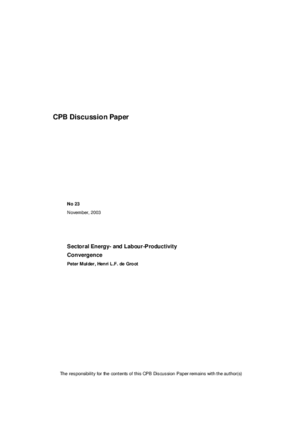Sectoral energy- and labour-productivity convergence
Cross-country differences of energy-productivity levels are shown to be substantially larger than cross-country differences of labour-productivity levels at all levels of sectoral aggregation. A s-convergence analysis shows that the development of cross-country variation in productivity performance depends on the level of aggregation. Both patterns of international productivity convergence and divergence exist across sectors.
Using a panel-data approach, we find in most sectors energy productivity to grow relatively fast in countries with relatively low initial productivity levels, while in several sectors this is also true for labour productivity. This evidence of ß-convergence supports the hypothesis that lagging countries tend to catch up with technological leaders, in particular in terms of energy productivity.
Moreover, the results show that convergence is conditional rather than unconditional, meaning that productivity levels converge to country-specific steady states. Searching for the fundamentals determining cross-country productivity differentials reveals a positive productivity effect of energy prices and economies of scale in several sectors, while wages, investment share, openness and specialisation play only a very limited role in explaining (cross-country differences in) energy- and labour-productivity growth.
